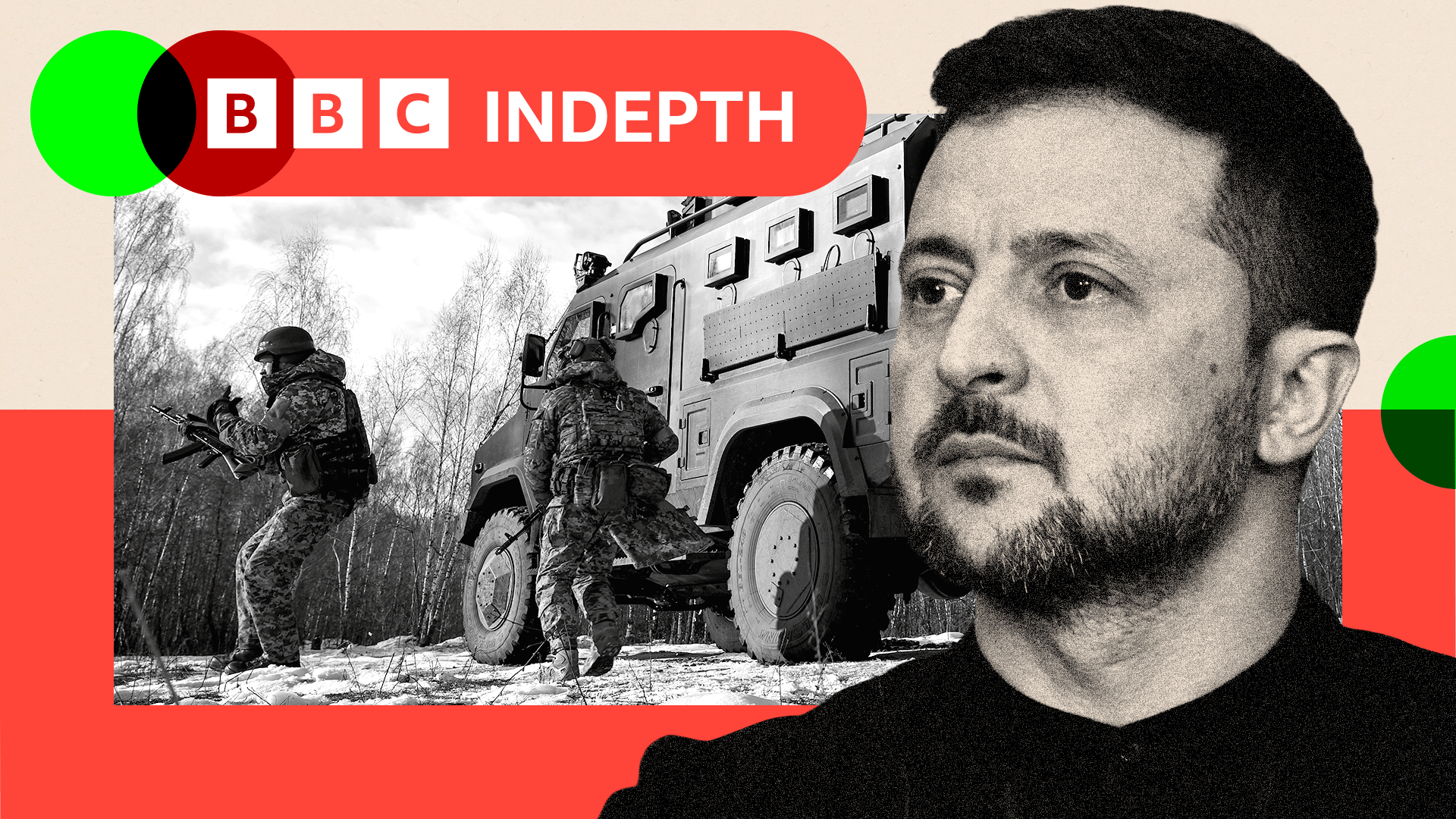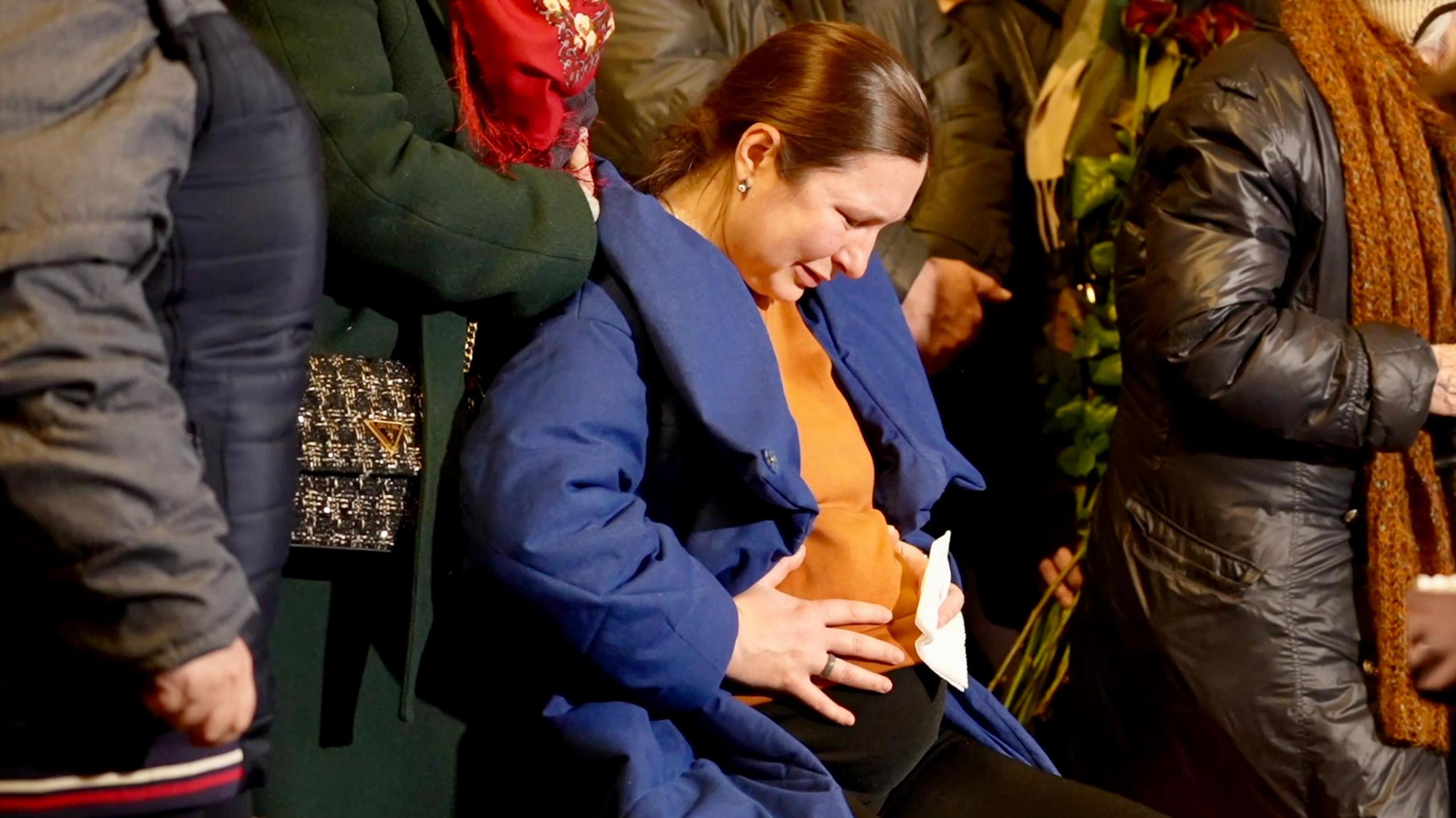'It's like hell': Race to evacuate residents from Ukraine front-line city
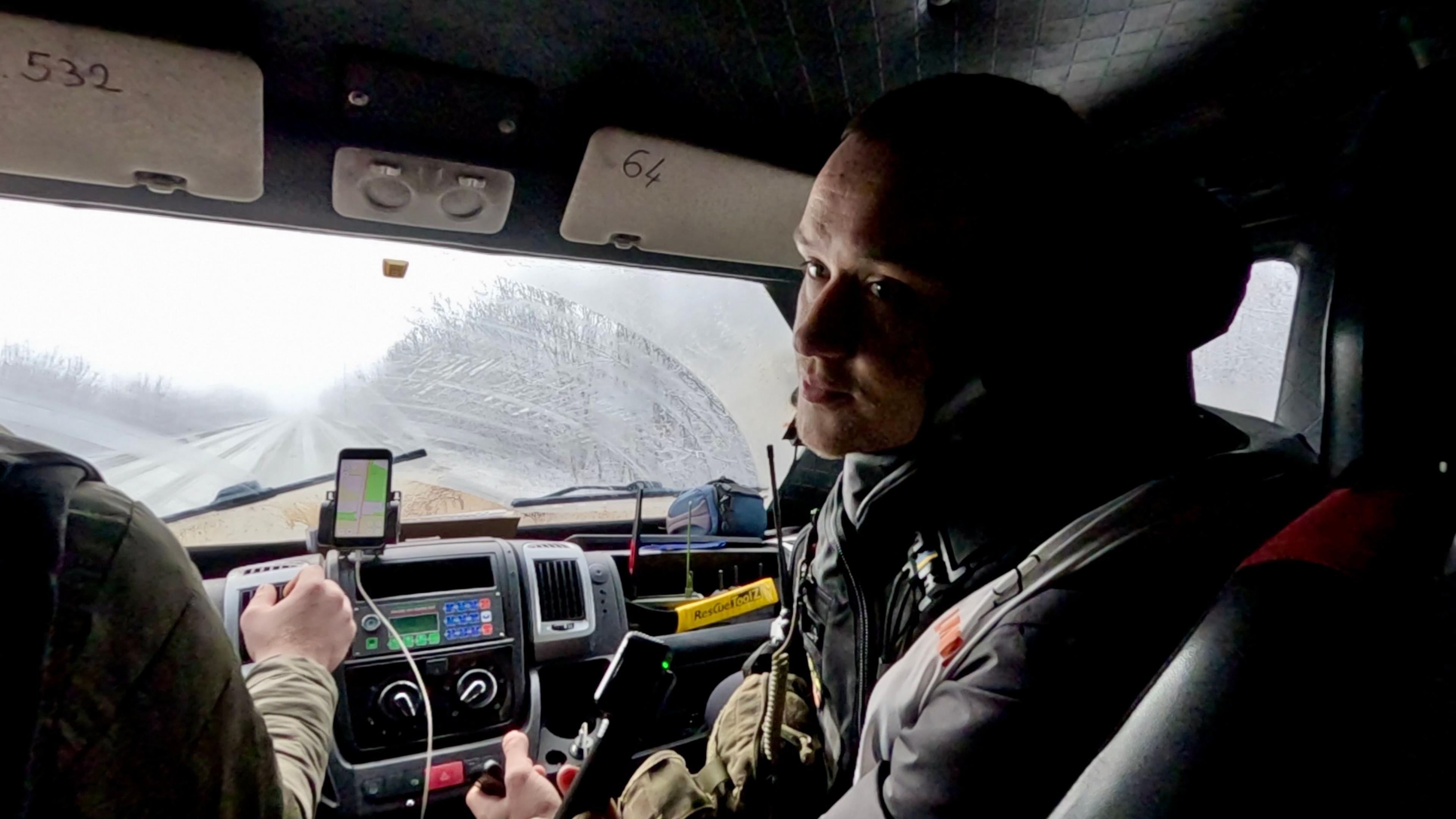
The BBC joined Anton Yaremchuk as he evacuated people from the city of Pokrovsk
- Published
As he prepares to set off on another rescue mission on Ukraine's eastern front, 35-year-old Anton Yaremchuk is grateful for the fog. It will shield him and his colleague Pylyp from Russian drones hunting from the skies. His armoured van will provide more protection – but only up to a point. Every journey could be the last.
In December shrapnel from a drone attack ripped through a clearly marked armoured vehicle used by his team, causing injuries but no deaths.
"We were extremely lucky," he says.
Anton's regular destination these days is the industrial city of Pokrovsk, which he says is "being attacked night and day".
Russian forces are closing in – they are now less than 2km (1.2 miles) away.
"The last few days we were coming in, there was hell," Anton tells us. "There are around 7,000 people still there. We'll try to get some people out of that nightmare."
He's been doing just that since Moscow's full-scale invasion in February 2022.
With his country under attack, the Ukrainian cinematographer left his life and career in Berlin, came home and co-founded a small aid organisation, Base UA. Since then, he and his team have managed to get about 3,000 civilians out of harm's way, taking them away from front lines to safer areas.
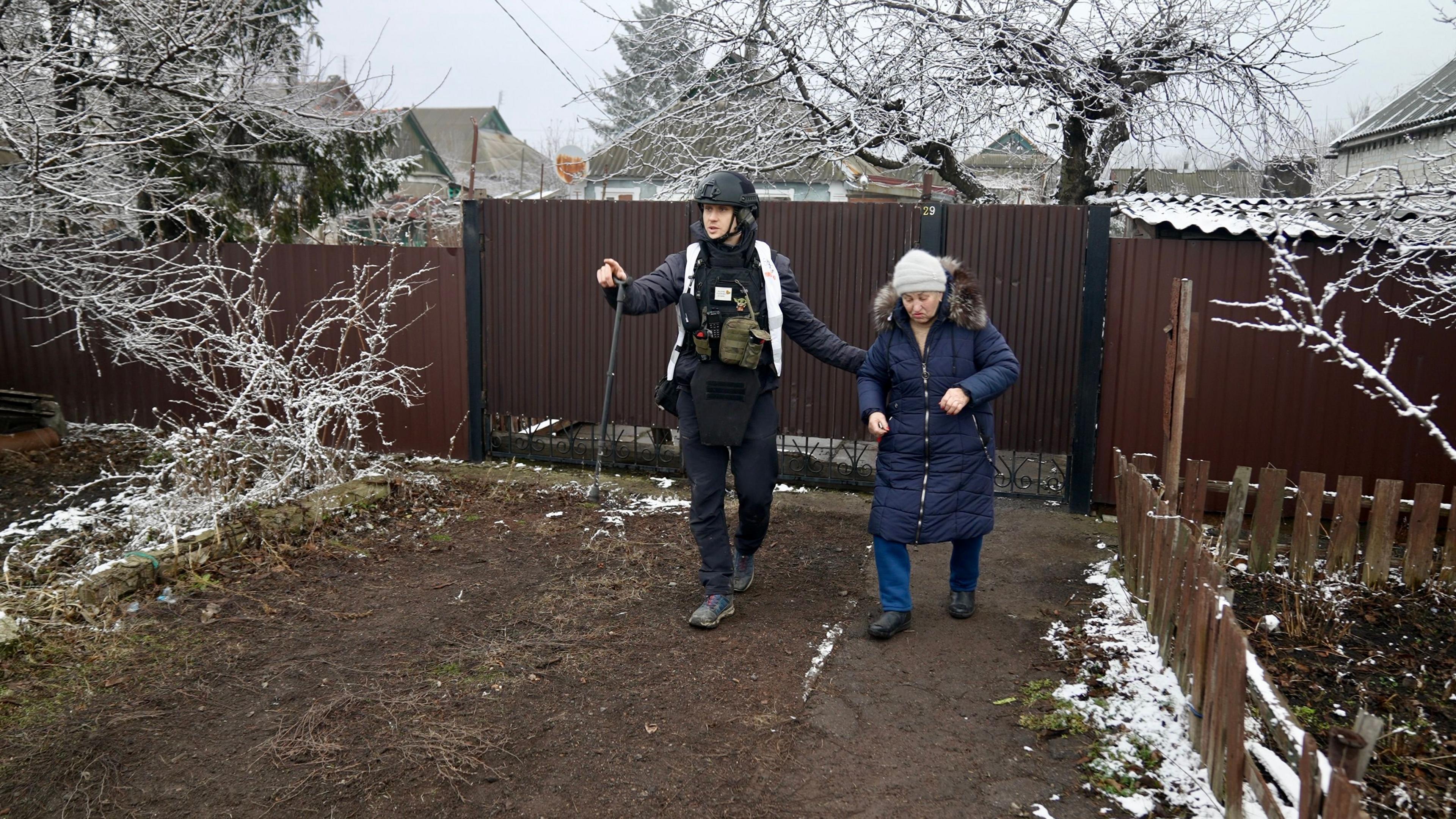
Very few residents – mostly elderly – remain, as they wait for Pokrovsk to fall
Pokrovsk used to be one of those places.
"It's crazy," he says as we head for the city, "because this used to be the haven, the safest city in the region and the biggest hospital. The evacuation train was departing from Pokrovsk."
If and when Russian forces take the city, it will deprive the Ukrainian military of a key supply and transport hub.
Ukraine has already lost the output from a crucial coal mine in the area – the only one producing coking coal for its steel industry. Operations were suspended last month because of the Russian advance.
We join Anton for the journey to Pokrovsk. He has a tourniquet, and a separate medical kit attached to the front of his body armour. His white high-visibility jacket bears the slogan "leave no-one behind".
Before we set off, there's a warning. "When we park, get out of the vehicles and don't stand nearby," Anton tells us, "in case they are targeted."
The closer we get the more explosions we hear. War has left its mark, draining the city of life. Streets are deserted, and houses boarded up. Some buildings have been flattened. There's no smoke from the chimneys on snow-capped rooves. We pass a parked car with a white flag.
But we find Olga, already waiting by the roadside, wrapped up in a lilac winter coat and furry hood. She's one of six people on Anton's list for evacuation this time.
She goes to lock up her home - moving quickly despite her 71 years. And then she gets into the van and does not look back.
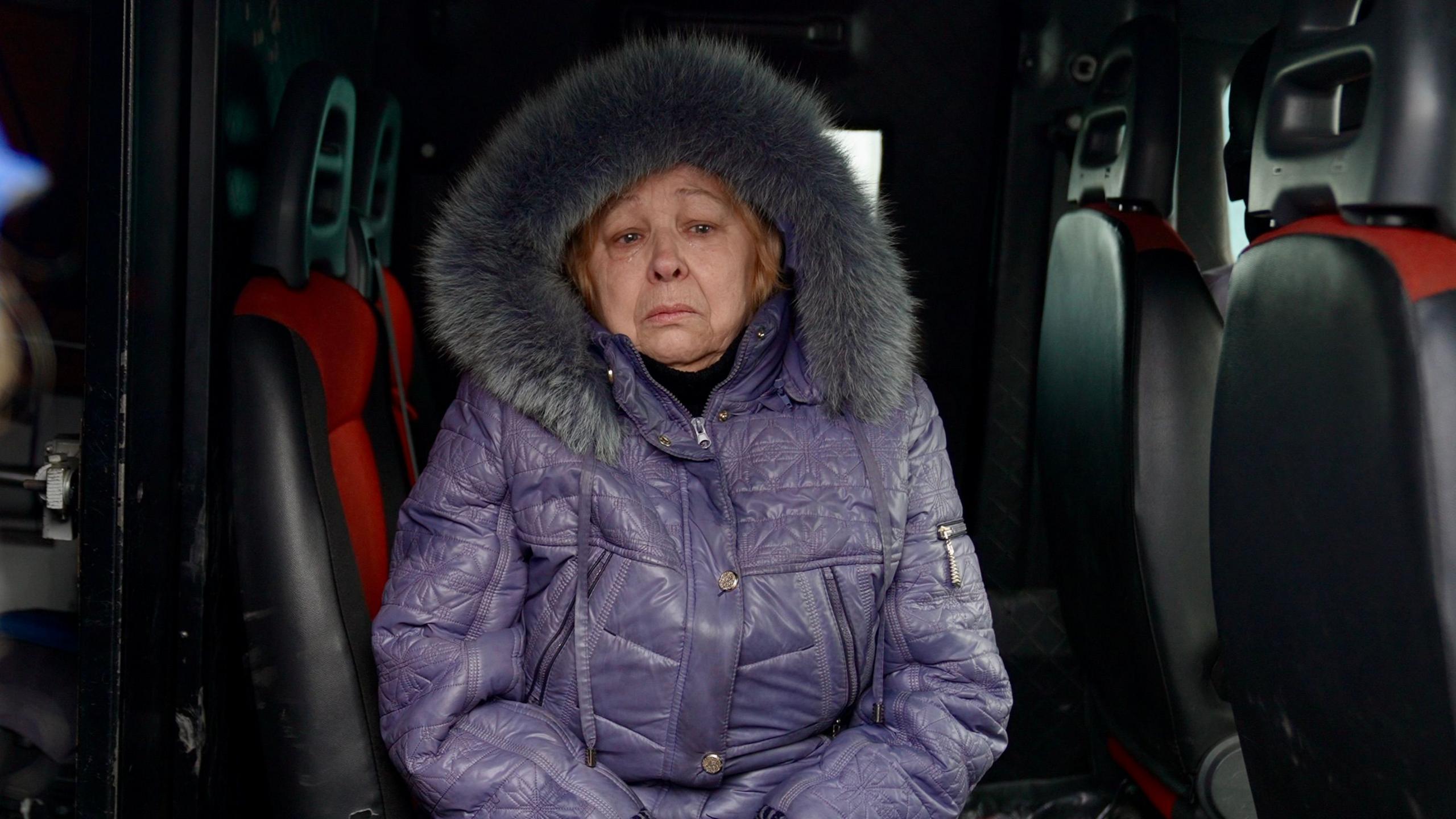
The escalation in fighting has forced Olga to leave her home of 65 years
"I have been in this house for 65 years," Olga says.
"It's hard to leave everything behind. But it's not life any more, it's like hell. In the beginning we thought maybe we will sit it out, but now the ground is shaking."
Her children and grandchildren have already fled the bombing. I ask if she thinks she will be able to come back one day. "Who knows," she replies, "but we hope."
Along the way, whenever Anton spots people out on the street – and there aren't many - he urges them to go. He stops the car to hand out leaflets explaining that evacuation is free, and help, including a place to stay and ongoing payments, is available in the city of Pavlohrad to the west. But some are hard to persuade.
"I have to stay," one elderly woman says. "My son has died, and I need to be near his grave."
"I don't think he would want this," Anton says.
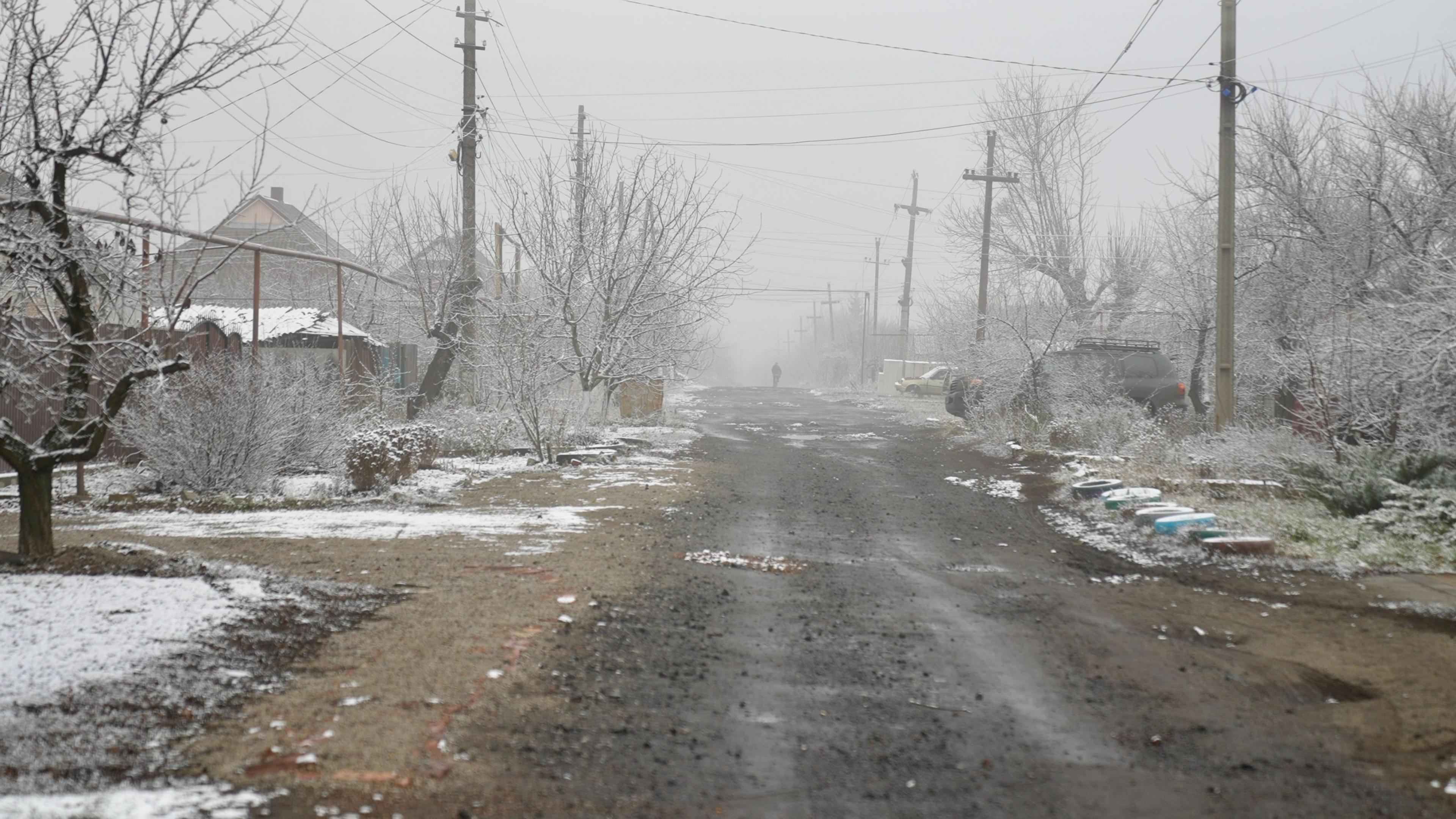
Pokrovsk was considered a safe hub but now the Russian army is closing in on the city
We drive on and pass a group of three who have been out collecting water. Anton shouts another warning. "There will be street battles," he says, "unfortunately, I promise you this. I am doing this from the very first day. It's the same everywhere. This is the final stage."
One of the women comes forward to take a leaflet. "God keep you safe," she tells him before going on her way.
Anton moves fast from address to address. When there's no answer at one house, he climbs over a high metal gate to investigate. He knocks. He shouts. He speaks to a neighbour. With no sign of the woman he hoped to evacuate, we drive on.
I ask what he's expecting for 2025, now President Trump is back in the White House and pushing for peace talks.
"I stopped looking too much ahead," he says. "I think nobody really knows what's going to happen. I personally don't think that even if some kind of negotiations will start, they will bring a ceasefire anytime soon."
More than this he expects fighting will worsen if talks do start, as both sides will try to gain leverage.
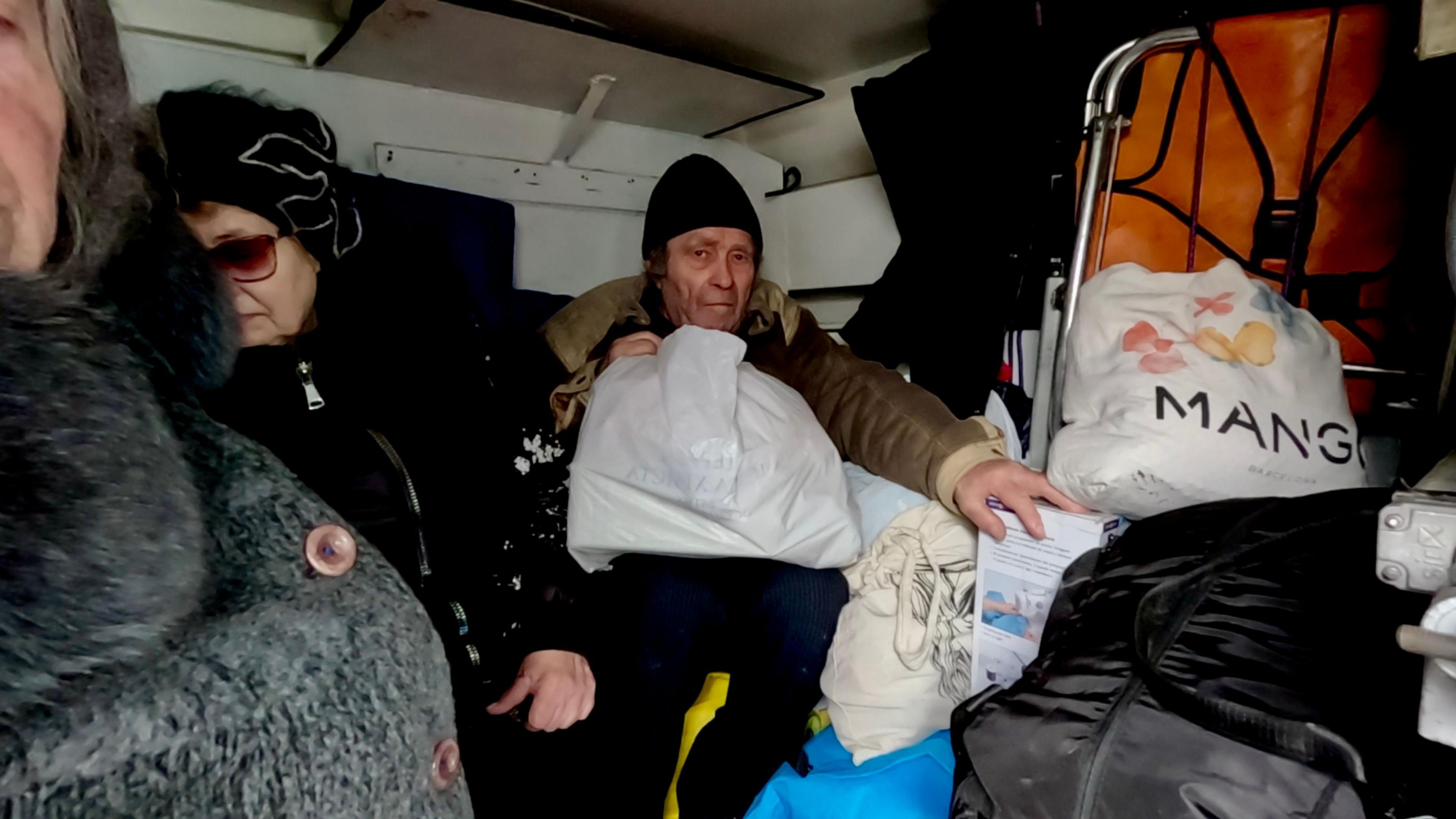
Anton drives around the city urging people to evacuate
The last pick up of the day is 75-year-old Lyuba – her white hair peeping out from under a scarf. Her long life is now compressed into a few plastic bags. She looks bereft and flinches at every explosion we hear.
"It has been bad," she tells me. "Bad. We were left alone. There are no authorities. People are just getting killed under the sky," she says, gesturing upwards. "There's no gas, no water, no electricity."
Lyuba is helped into the van, which is now full, with five elderly evacuees – their memories and their fears - and one black cat peering out from a pet carrier. No-one speaks.
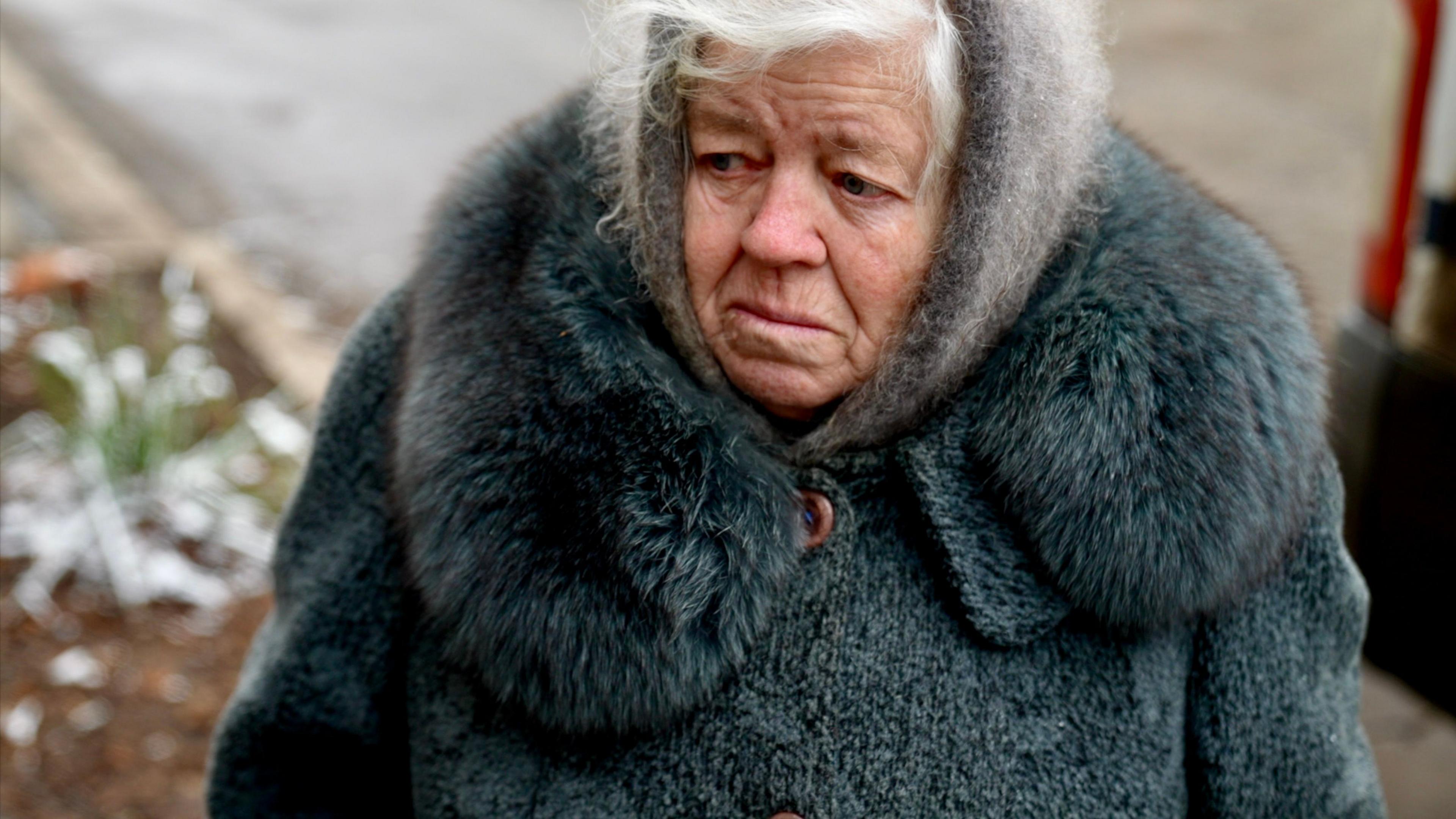
Seventy-five-year-old Lyuba says there is no gas, water or electricity in the city
For Anton this is a familiar picture, but still a painful one.
We first travelled with him in the heat of summer in 2022. He was then evacuating civilians from another front-line city – Lysychansk - as Russian shells rained down.
Now in Ukraine's third winter of war he – and other volunteers – are still trying to outrun moving front lines and save whoever they can.
"To be honest every time I see this I break down," he says, "because it's just these innocent people leaving everything behind. These are human tragedies, and you can never really get used to it. But I am glad that we manage to get people out to safety."
That comes at a cost, and it is increasing.
Since we travelled to Pokrovsk, one of Anton's teams has come under fire from a Russian drone. A 28-year-old British volunteer lost an arm and a leg – saving civilians - but is now stable in hospital.
Following the attack, Anton's group have suspended evacuations from Pokrovsk, and from other front-line areas.
A Ukrainian police unit called the White Angels is still doing rescue missions in the city. They tell us they are "trying to be very cautious and careful".
Inside the city, in freezing basements and unlit homes, the remaining residents – mostly elderly – are at the mercy of Russian glide bombs and artillery, as they wait for Pokrovsk to fall.
Additional reporting from Wietske Burema, Goktay Koraltan and Volodymyr Lozhko
- Published28 January
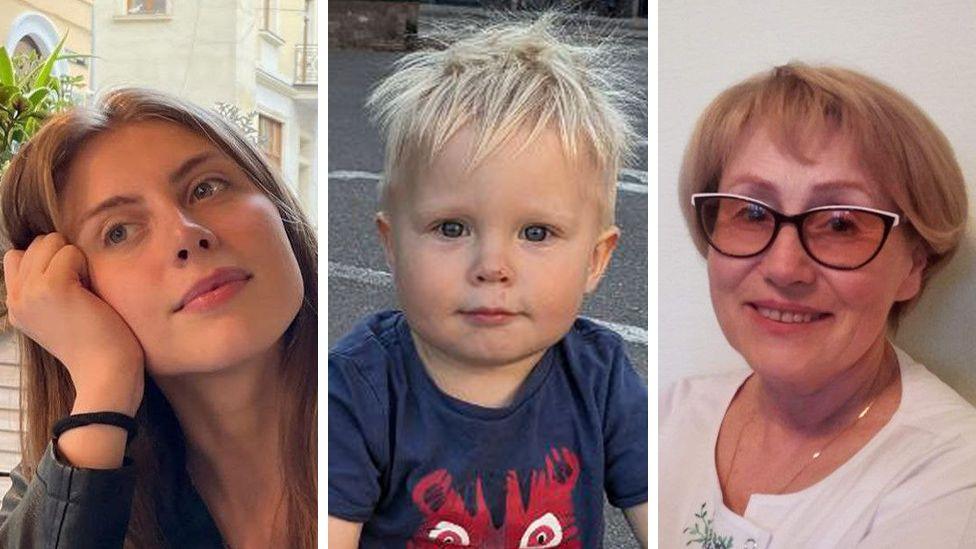
- Published2 January
